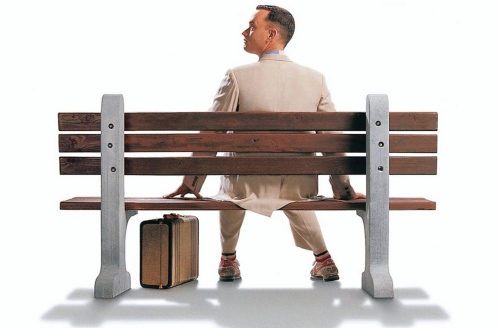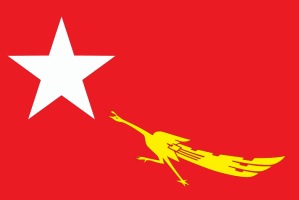About this World
I pondered for some time about how to introduce this essay. After a few beginning drafts, I decided upon a backstory about two astrophysicists: Carl Sagan and Neil deGrasse Tyson.

Two professors of astrophysics
This backstory begins with Carl Sagan. Sagan taught me, along with countless millions, about astrophysics in 1980 with the TV series Cosmos: A Personal Voyage.
My only science class in college, graduate, or post-graduate school was a ten-hour geology class in my freshmen year at Muskingum College. That being said, Sagan was able to present astrophysics in a new and avant-garde style. He captured millions of people and then explained astrophysics so that a novice in science could grasp his thirteen lectures. His classes were polished, objective, intriguing, and fascinating. Nevertheless, I don’t remember anything in the Cosmos series that allowed his TV students inside his personal feelings and concerns.

Professor Sagan’s TV classroom
I never saw or read anything of Sagan’s personal angst. He did mention his death with the same feeling as when he talked about some distant galaxy. “I would love to believe that when I die I will live again, that some thinking, feeling, remembering part of me will continue...I want to see my younger children grow up and to play a role in their character and intellectual development. I want to meet still unconceived grandchildren.”
The only time Sagan’s emotional side emerged was sixteen years after the Cosmos series. He suffered from myelodysplastic syndrome (MDS) and died at 62 from pneumonia.
Neil deGrasse Tyson was the next generation of TV astrophysicists after Sagan. His lesson plan started with Cosmos: A Spacetime Odyssey 2012 and, two years later, a sequel, Cosmos: Possible Worlds. During his teaching over the decades were two dozen books and an equal number of other TV or movies.
Sagan was an avant-garde professor in the 20th century; however, Tyson was avant-garde in the 21st century.

Professor Tyson’s TV classroom
Interestingly, Tyson also paralleled Sagan beyond their teaching styles. Both were born in New York City, not too far from each other, separated only by several decades. Tyson and Sagan also didn’t talk about personal problems during their lives. I had read and watched Tyson explain the cosmos, but I never saw any comment about personal pains or related issues.
That was true until I started an essay about Gov. DeSantis of Florida. My article began with this quasi-pensive comment, “Let me get this straight.” DeSantis doesn’t want to have any school or business teaching things that would make someone “feel guilt, anguish or any form of psychological distress” regarding race, color, sex, or national origin. DeSantis likes his WOKE acronym, which stands for Wrongs to Our Kids and Employees.
I was going to deal with DeSantis’ stupid and blatant racial WOKE mindset. He didn’t want white students psychologically hurt by reading about slavery. That was the genesis of my comment, “Let me get this straight.” DeSantis doesn’t want white students to feel any discomfort. What about how all the slaves felt before the Civil War and the years of Jim Crow following the Civil War to the present day? A white governor has the same mindset as Trump.
As I googled DeSantis, Tyson’s name didn’t even cross my mind. That said, something caught my attention while scrolling through Internet sites searching for the wokey governor.
I stumbled, fortunately, across an interview with Tyson in December 2022. It started in the typical Tyson teaching style, which glued me to the two-hour interview. Tyson was into explaining why he got into astrophysics. He talked about his father taking the family to the Hayden Planetarium on weekends to see the stars, which weren’t visible from the Big Apple at night.
It wasn’t long before Tyson talked about his father having been in the segregated army. His father taught the young Tyson about not responding to racism with hatred. Whoa! Then came an outpouring of learning of his feelings about racism. His father had taught him about not being bitter toward white racists. The white racism was due to whites not fully understanding life. This section of the interview is critically important. Tyson learned never to be bitter.
Tyson admitted that he needed to process his father’s concept. “How long can I talk about the universe and not bring it down to Earth?” Sagan dealt with death and its finality, but Tyson dealt with life and facing racism. “My head has been in the stars, but my feet have been on Earth.” That paradoxical statement gave a glimpse of Tyson’s mindset. I had never seen or read anything he had written or thought about dealing with racism.
That first part of the interview caused me to think. I have written articles about the well-meaning comment about walking in another person’s shoes, which I contend is impossible. We must walk through life in our own shoes, which will cause us to become who we wish to be. I thought about moving to Mt. Lebanon before going to junior high school. I learned, mistakenly, that I was dumb and poor. That curse became a blessing and explains my modus operandi. I’m 80 years old and still teaching at the college level. More importantly, I have a purpose in the time remaining in my life.
Over a decade ago, I discovered my family near Inle Lake, Myanmar. We are family. Ti Ti, my oldest granddaughter, went to Gusto University for two years. She is both brilliant and caring. She wants to use her education to make Myanmar a more livable place. She teaches English to the younger generation in her country.

I invited Ti Ti to live in my home and attend the college where I teach. Actually, she took a class from me last semester online. This semester, she is taking an English composition course online from an English professor.
I have reached out to four people who do not know who I am. I wanted them to help expedite getting Ti Ti a student visa. However, writing to someone asking for help has resulted in my emails being placed in a stack of unread or unanswered emails. While that is difficult to handle, I haven’t given up. I have promised Ti Ti that she will get a student visa to go to school in the States. In that way, Ti Ti will help her country improve its living conditions.
I’m optimistic, but I know my clock is ticking. Ti Ti and her family grasp that I will do everything possible to assist Ti Ti. Having said that, if I’m on my deathbed and have failed to help Ti Ti to get her student visa, I haven’t totally failed Ti Ti. I did teach her that I see value in her and her desire to help her country emerge out of COVID and the military coup. I’m proud of my granddaughter.
Finally, I need to apply what Tyson learned from his father about how to live life. I can’t be bitter about Ti Ti’s roadblocks to getting a student visa.
This is the interview with Neil deGrasse Tyson.
This video is a part of Sagan’s Cosmos.
This soundbar is Vangelis’ Heaven and Hell used in Cosmos.
This is a part of Tyson’s Cosmos.
This is Tyson talking about the Cosmic Calendar. Every student that I have taught in the last dozen knows the Cosmic Calendar.
This soundbar is of Tyson’s Cosmos—A Spacetime Odyssey




















